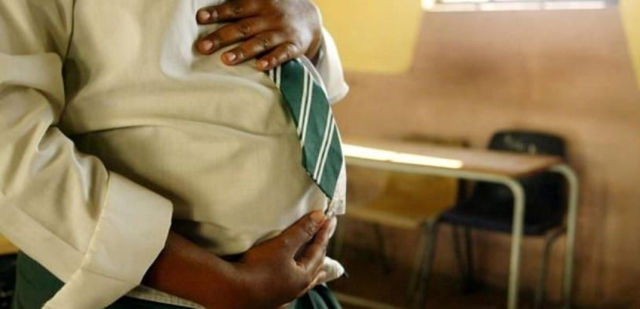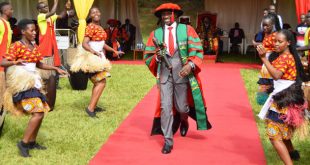
Kampala, Uganda | THE INDEPENDENT | Several schools across the country have created safe spaces for learners who conceived during COVID-19 lockdown. The spaces are used mainly for those who have to breastfeed babies, while at the same time attending classes.
This follows reports that thousands of teenagers became pregnant over the last two years when schools were closed as a measure to contain the spread of coronavirus disease. In the aftermath, the government advised schools to allow all learners pregnant or breastfeeding to return to school, as the gates reopened on January 10, 2022.
Schools were also encouraged to make the environment conducive for learners in this category. In response, both primary and secondary schools in Soroti have set aside rooms to cater for female learners who may be pregnant or breastfeeding at school. Statistics from various districts indicate that more than 30,000 teenage girls got pregnant in the last two years.
Although no pregnant or lactating mother has turned up, Awoja Primary School in Aukot Sub County has organized two rooms while Kichinjaji Primary School in Soroti City has a room for teen mothers. In Soroti Secondary School, three breastfeeding learners have turned up and for them, the school has created a double room and shade to take care of the babies and their attendants.
Joseph Ecegem, the Deputy Head Teacher in charge of academics says that they have created space to accommodate more than 100 child-mothers if they show up. He says that the school has also recruited a nurse on standby to help mothers and their children while at school.
Winnie Aculo, 20, a mother of a two-month-old baby is among the first breastfeeding students to return to Soroti Secondary School. Aculo conceived after the first lockdown which was instituted by the government in March 2020, but she says her parents surprised her when they told her to return to school. “I was staying with the father of my child when my father asked me to go back to school. It was like a dream because I never expected him to have forgiven me so easily. I am extremely happy for the opportunity to return to school,” she said.
But her Father Albert Okello says that giving girls a chance to study after falling victim of unwanted pregnancies helps the affected children to reform and focus on education. He said that it would be a double loss to his family if he left his daughter to marry off without giving her a second chance.
At Bugunzu Primary School in Sironko district, the school has received a primary-four pregnant pupil who was reportedly impregnated by a 46-year-old man. Scovia Nafuna, the School Deputy Headteacher said that for girls like her, the school management has set up a shelter and tasked the senior woman teacher to take charge and help them balance parenting and school.
Charles Ondoki Torac, the Head Teacher of Holy Rosary Primary School in Gulu told Uganda Radio Network in an interview that the school is welcoming all learners irrespective of their status. He says that so far, the school has registered one Primary seven learner who came back with two children. Ondoki adds that the school has equally created a special room that will accommodate learners with special needs.
In Kisoro, District Education Officer Emmanuel Mwunvaneeza says that his office has registered one case of a pregnant minor who has reported to a primary school. Without divulging details for fear of victimization, Mwunvaneeza says that his office has issued guidance and counselling measures on how the pregnant and breastfeeding learners will be handled in order to remain comfortable. He adds that they have been training senior women teachers in primary schools on how to handle child- mothers when they turn in schools.
In Entebbe Municipality, some of the schools say that they are ready to handle pregnant learners. Sarah Monica Nabirye, the Entebbe Municipal Education Officer told our reporter that all schools, particularly public schools, must not turn away learners who are expecting or breastfeeding.
“We held several workshops ahead of the re-opening of schools and among the issues we discussed was how schools could manage pregnant and breastfeeding learners.” As a result, the public schools are expected to have counsellors or senior teachers and other support mechanisms to encourage these learners to report to school and study until they are three months pregnant as guided by the education ministry.
But in the Lango sub-region, most schools indicated that they are not prepared for child-mothers. At Okio Primary School in Aromo sub county, Lira district, Kenneth Acuma, the headteacher says they have space limitations.
Zaddock Odongo, the headteacher Adem primary school in Otuke district wondered how schools will detect pregnancy in young girls and be able to keep them in school among other pupils.
Similarly, in Kasese district, several schools do not have facilities to accommodate pregnant or breastfeeding learners, and George Mayinja, the District Education Officer says that it is suitable for child-mothers to return to school within three months after childbirth.
*****
URN
 The Independent Uganda: You get the Truth we Pay the Price
The Independent Uganda: You get the Truth we Pay the Price


